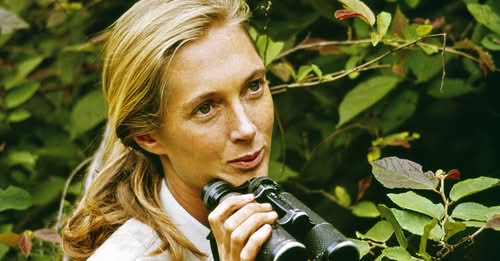It is with profound sadness that the world mourns the passing of Jane Goodall, the renowned primatologist, ethologist, and conservationist, who died on Wednesday, October 1, 2025, at the age of 91. The Jane Goodall Institute confirmed her death, stating that she passed from natural causes while in California on a speaking tour. Her life was marked by groundbreaking scientific discovery, tireless advocacy for the natural world, and an unwavering commitment to protecting animals and the environment.
A Trailblazer in Primatology
Jane Goodall first captured global attention in the 1960s when she began her groundbreaking study of chimpanzees at the Gombe Stream Chimpanzee Reserve in Tanzania. Her pioneering observations transformed the field of primatology and reshaped humanity’s understanding of animal behavior.
Among her most significant discoveries, Goodall documented chimpanzees engaging in behaviors previously thought to be uniquely human. She observed them eating meat, forming social bonds, fighting, expressing affection, performing ritualistic activities such as rain dances, and most famously, using tools — a discovery that challenged long-held scientific assumptions about the separation between humans and other animals.
In a 2020 interview with Rolling Stone, Goodall emphasized the profound lesson of her research: “That we humans have been terribly arrogant. We are part of and not separated from the rest of the animal kingdom — we are not the only sentient, sapient beings on the planet.” Her work underscored the deep connections between humans, animals, and the natural world.
Advocacy and Conservation
Beyond her scientific achievements, Goodall devoted her life to environmental advocacy. She founded the Jane Goodall Institute, an organization committed to wildlife research, conservation, and community-centered environmental initiatives. Throughout her decades-long career, she championed the protection of natural habitats, reforestation projects, and sustainable practices around the globe.
Goodall was also a prolific author, publishing works that spanned scientific studies, memoirs, and children’s books, making her research and philosophy accessible to audiences of all ages. She appeared in numerous documentaries and films, sharing her message of conservation and compassion worldwide.
A Cultural Icon
Jane Goodall’s impact extended beyond science and environmental activism; she inspired artists, musicians, and countless individuals through her life and work. Stevie Nicks paid tribute to Goodall in the song “Jane,” writing:
“There are angels here, angels / There are angels here on earth, angels / Angels, sent from God / You will never feel, that you have ever done enough / But you have, Jane.”
Her legacy is reflected not only in scientific circles but also in the hearts of millions who saw in her a model of empathy, courage, and relentless dedication to the planet and its creatures.
Remembering a Life Well Lived
Jane Goodall’s passing marks the end of an era in primatology and conservation, but her influence will endure for generations. From revolutionizing scientific understanding of chimpanzees to inspiring global conservation efforts, her work reshaped humanity’s relationship with nature.
As the world mourns, tributes have poured in honoring her extraordinary contributions, her wisdom, and her unwavering belief that individuals can make a difference. Goodall’s life was a testament to the power of observation, compassion, and action, and she leaves behind a legacy that will continue to inspire scientists, activists, and nature lovers worldwide.
The planet has lost a true champion, but Jane Goodall’s vision and dedication remain a guiding light in the quest to protect and restore the natural world.

